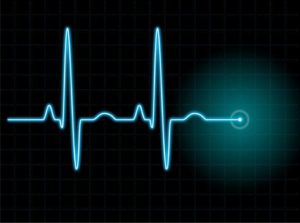Another virtual healthcare provider is integrating BioIntelliSense’s wearables into its patient monitoring platform. The company’s latest customer is Myia Health, which specializes in home care and currently provides technology for the Mercy virtual hospital.

The partnership with BioIntelliSense concerns the company’s FDA-certified BioSticker and BioButton devices, which are placed on the body and can continuously track information like heart rate, activity level, and skin temperature. Those vital signs will then be transmitted to a patient’s doctors through the Myia platform in near-real time.
Since the wearables record a constant flow of information, they can more readily detect any changes in someone’s condition, and alert doctors to a potential change in someone’s status. That allows doctors to respond to adverse events more quickly, and to prioritize patients that are in the most critical condition. The BioButton and BioSticker can also monitor the symptoms and progression of diseases like COVID-19.
“A key to delivering successful care in the home is spotting potential complications before they turn into major health events, which can be challenging without high quality continuous information on patients’ vital signs and functional markers of health,” said Myia Health Co-Founder and CEO Simon MacGibbon. “Integrating [BioIntelliSense’s devices] in the Myia platform will enable care teams to gauge patient health status and intervene when patients are most in need of care with the confidence to make actionable clinical decisions.”
Moving forward, BioIntelliSense will work with Myia to develop new preventative care models and improve the quality of continuous monitoring systems. In that regard, Myia has previously partnered with the American College of Cardiology.
BioIntelliSense, meanwhile, has delivered wearables for multiple virtual healthcare providers in the past few months. Seqster, Jasper Health, and Airstrip have all integrated BioIntelliSense’s devices with their remote patient monitoring platforms, while the company itself brought in $45 million in Series B funding in July.

Follow Us